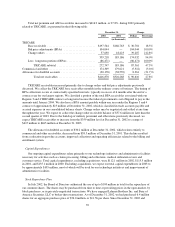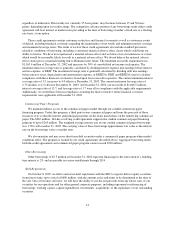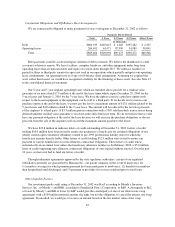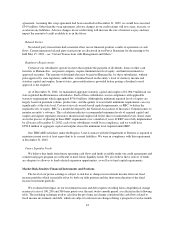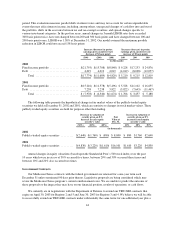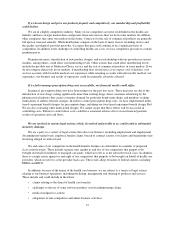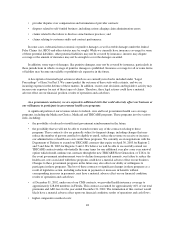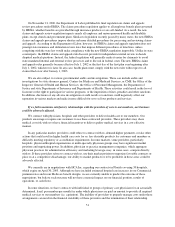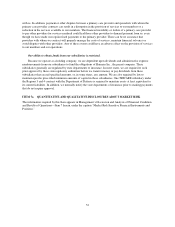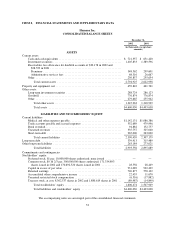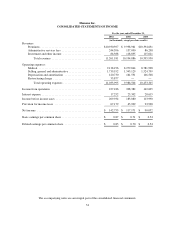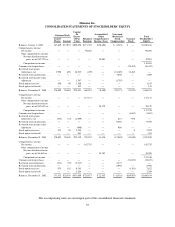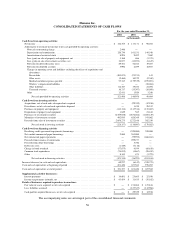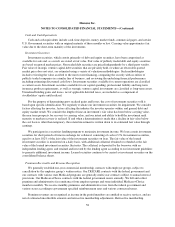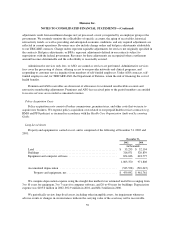Humana 2002 Annual Report Download - page 55
Download and view the complete annual report
Please find page 55 of the 2002 Humana annual report below. You can navigate through the pages in the report by either clicking on the pages listed below, or by using the keyword search tool below to find specific information within the annual report.• government regulatory and reporting requirements;
• higher marketing and advertising costs per member as a result of marketing to individuals as opposed to
groups;
• the possibility of temporary or permanent suspension from participating in government health care
programs, including Medicare and Medicaid, if we are convicted of fraud or other criminal conduct in
the performance of a health care program or if there is an adverse decision against us under the federal
False Claims Act; and
• state budget constraints.
Increased litigation and negative publicity could increase our cost of doing business.
The managed care industry continues to receive significant negative publicity reflecting the public
perception of the industry. This publicity and perception have been accompanied by increased litigation,
including some large jury awards, legislative activity, regulation and governmental review of industry practices.
These factors may adversely affect our ability to market our products or services, may require us to change our
products or services, may increase the regulatory burdens under which we operate and may require us to pay
large judgments or fines. Any combination of these factors could further increase our cost of doing business and
adversely affect our financial position, results of operations and cash flows.
Our industry is currently subject to substantial government regulation, which, along with possible
increased governmental regulation or legislative reform, increases our costs of doing business and could
adversely affect our profitability.
The health care industry in general, and health management organizations, or HMOs, and preferred provider
organizations, or PPOs, in particular, are subject to substantial federal and state government regulation,
including:
• regulation relating to minimum net worth;
• licensing requirements;
• approval of policy language and benefits;
• mandated benefits and processes;
• provider compensation arrangements;
• member disclosure;
• premium rates; and
• periodic examinations by state and federal agencies.
State regulations require our licensed, operating subsidiaries to maintain minimum net worth requirements
and restrict some investment activities. Additionally, those regulations restrict the ability of our subsidiaries to
make dividend payments, loans, loan repayments or other payments to us.
In recent years, significant federal and state legislation affecting our business has been enacted. State and
federal governmental authorities are continually considering changes to laws and regulations applicable to us and
are currently considering regulations relating to:
• mandatory benefits and products, including a Medicare pharmacy benefit or discount card;
• rules tightening time periods in which claims must be paid;
• patients’ bill of rights;
49


